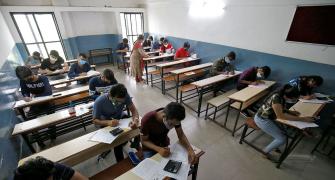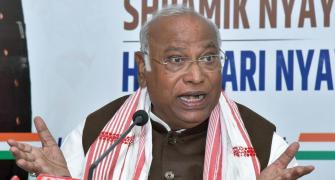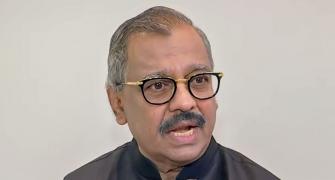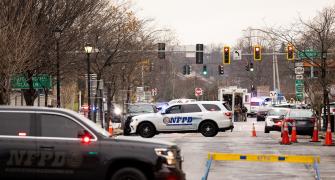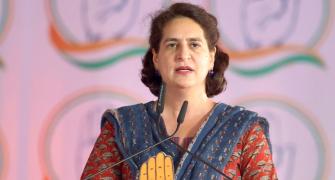The murder of two Indo-Canadian women from the Lower Mainland (British Columbia) in the past two weeks -- allegedly by their husbands -- has sparked a debate in the community.
Navreet Waraich, mother of a four-month-old boy, was reportedly stabbed to death on October 29 in Surrey. According to a Globe and Mail report, 'her husband Jatinder was arrested and charged with second-degree murder'.
Gurjeet Kaur Ghuman, a nurse from Coquitlam, was reportedly shot in the head on October 20, while riding in a car with her estranged husband Paramjit. After allegedly shooting Ghuman, Paramjit shot himself. Reports say Gurjeet is in a serious condition in hospital.
British Columbia Attorney General Wally Oppal, an Indo-Canadian and formerly judge of the British Columbia appeal court, has reacted to the murders of Waraich and Paramjit, saying spousal abuse has become like a 'cancer' among the Indo-Canadian community.
'Spousal violence is an issue of the community at large', he was quoted as having said. 'But it's more acute in the South Asian community'.
Liberal Member of Parliament Ujjal Dosanjh told rediff.com, "I have been living in British Columbia since 1968 and I thought we have kind of come out of the dark ages on violence against women. Obviously I have been proved wrong."
There have been quite a few cases of spousal abuse among Indo-Canadians 'and the community sadly has been in denial about the problem', Dosanjh, former premier of British Columbia, said.
Violence against women is prevalent in other cultures also, Dosanjh noted. "Perhaps it is more prevalent in our culture than it might be in other sections of the society -- and we have to admit that. As long as we are in denial we won't do anything to repair it -- just as we have been in denial over the gang violence and we woke up only when over 70 young people died of bullets in the last six-seven years.
"All of us have to do our part," he continued. "Activists have to do more work. There have to be more services with the community to make people aware what their rights are. There should be a community pact -- social pact, cultural pact -- that nobody would tolerate violence against women any more. And that anyone who finds out there's violence against any woman, will speak out and talk to the police or talk to other people who can help."
"There has to be that kind of collective understanding in the community," he added.
Nina Grewal, Conservative member of Parliament from Surrey, too said she was aware of the problem.
"It breaks my heart to hear these terrible stories in Surrey," she said. "As a woman, my heart is very close to this issue. And my thoughts, condolences and prayers go out to the families of the slain women."
She has dealt with the issue as a member of the Parliamentary Standing Committee on Status of Women.
Grewal agreed with Dosanjh that 'there should be no tolerance to violence' and that 'we need an integrated approach from the whole community' to help prevent and deal with this problem.
"We must encourage women who are in this very difficult situation to come forward with their stories and break the cycle of violence and abuse," she added.
"We know violence against women exists and it has been one of our major concerns for three decades," said Raminder Dosanjh, who was among the founder members of the India Mahila Association in 1973. "It is very troubling to see this is happening again. It has once again sparked the debate in our community," she added.
But why does the problem exist? "Ours is a macho culture," responded Ujjal Dosanjh. "Firstly, we celebrate males and females are undervalued. Secondly, because you don't want to wreck families, you tolerate a level of violence around you. That has to be stop. Thirdly, when police do find that crime has been committed, they should act immediately."
"Violence has to be confronted," he continued. "If you don't confront it one day it may kill you."
Grewal said, "Unfortunately, nothing significant has been done [in the community] to deal with [domestic] violence, gangs and drugs -- which already claimed the lives of about 100 Indo-Canadian youth in the Lower Mainland in the last decade. Family violence [too] has been continuing without serious attention."
The underlying factor of violence against women, Ramidner Dosanjh said, is the 'imbalance of power between men and women'.
"Of course, this domestic violence and spousal abuse takes different shapes in different parts of the world," she said. "In feudal societies you can find reasons for it. In major urban areas you find different reasons for it, but the underlying factor is power imbalance -- where one group can exercise control and subject the other group to this kind of treatment."

